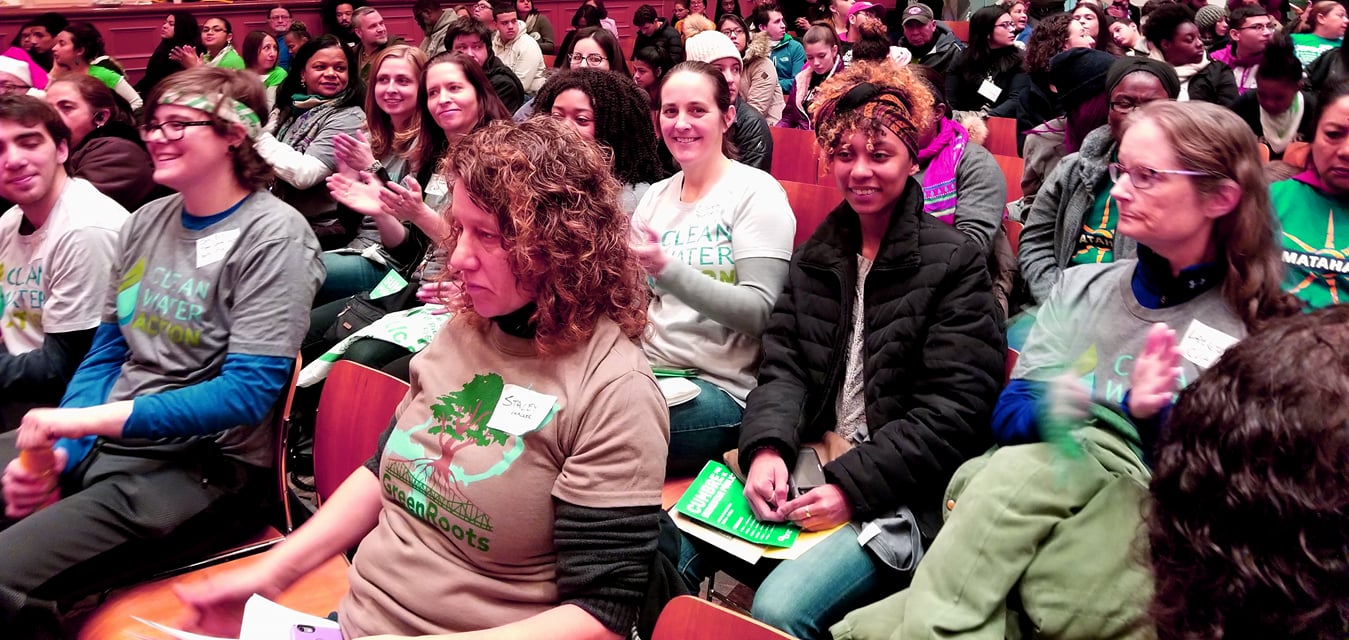
For those of us fighting for environmental protection in the United States, 2017 was not considered a banner year. But if you look beneath the surface of the decimated, damage-doing EPA, you found cities, states, companies and even everyday people doing the work that the federal government can’t be counted on to do right now. Looking back on Clean Water Action’s work in Massachusetts, we actually made some great progress. Here are some of the highlights:
In the State House Clean Water Action spent the first year of the 2 year legislative session showing that there is lots of support for environmental protection. Sixty percent of Massachusetts legislators signed a letter in support of legislation to prevent rate-payer subsidies for building new gas infrastructure; 130 organizations from across the state signed a letter delivered to the Environment Committee in support of legislation to codify environmental justice practices into state law; mothers, scientists, workers and more turned out to four different hearings to support banning toxic flame retardants and require manufacturers to disclose the presence of toxic chemicals in children’s products; and 500 people turned out for a hearing to show support for putting a price on carbon.
In the cities, Boston has launched a Zero Waste planning process, chosen a consultant team to lead it that we helped assemble, and included Clean Water Action’s Alex Papali as well as other members of the Zero Waste Boston coalition on its advisory committee. The City also adopted a ban on plastic bags and a community choice energy policy that will make renewable energy more accessible for residents and small businesses in Boston (Clean Water supported both of these efforts). Meanwhile, in Chelsea, Worcester and Boston’s Chinatown, Clean Water Action is partnering with community groups and energy experts to create 3 microgrid pilot projects which are all in the running for funding from the Massachusetts Clean Energy Center.
In the corporate boardrooms, retailers are committing to get toxic products off their store shelves. The Mind the Store Campaign – a nationwide collaborative effort which Clean Water Action leads the way on in Massachusetts and other states – successfully pressed 7 major retailers to make progress on creating store policies to get toxic chemicals off of their store shelves: Albertsons, Best Buy, Costco, CVS, Home Depot, Target, and Walmart. Get the details in November’s Retailer Report Card.
Finally, Clean Water Action joined residents and grassroots organizations in Massachusetts, led by Community Labor United, in setting our own agenda for the future. The 10 Year Agenda for Massachusetts was ratified at the Summit for Public Good in early December and will be shaping the movement in the next decade!
So if you’re feeling discouraged about the environmental rollbacks at the federal level, look locally! There are still many reasons to be hopeful.


